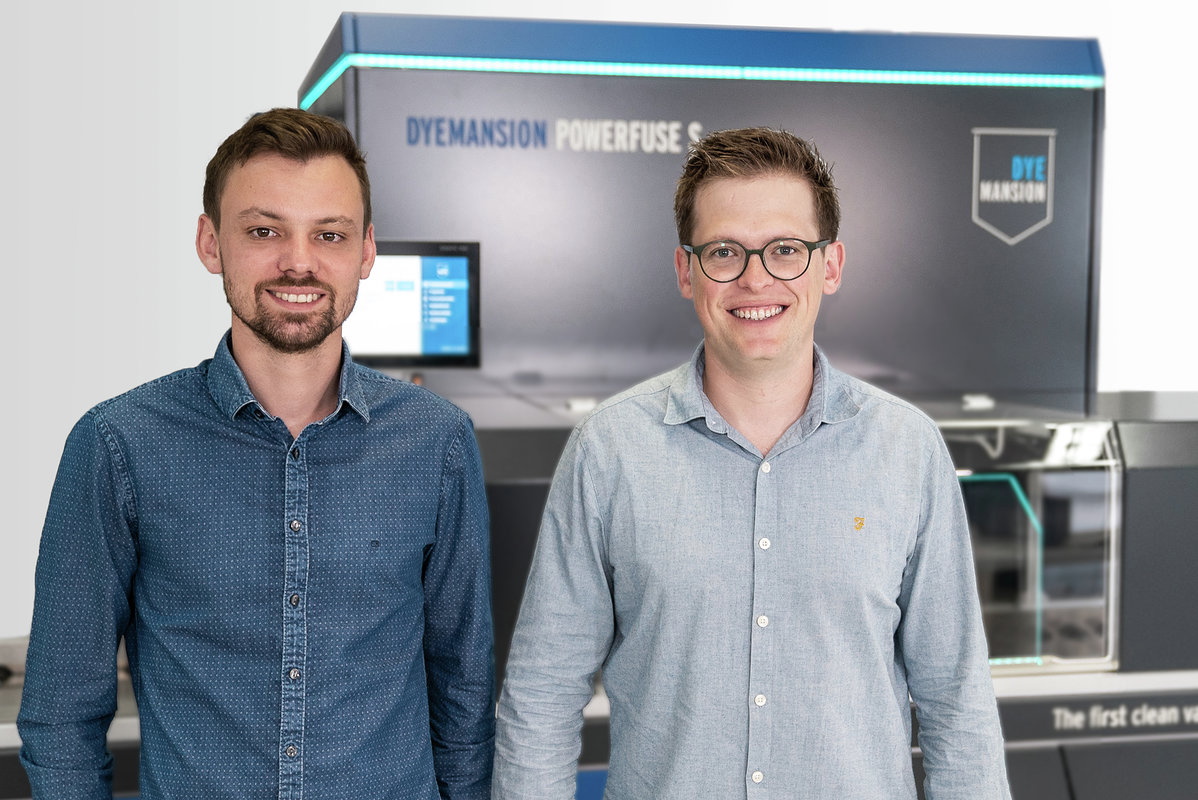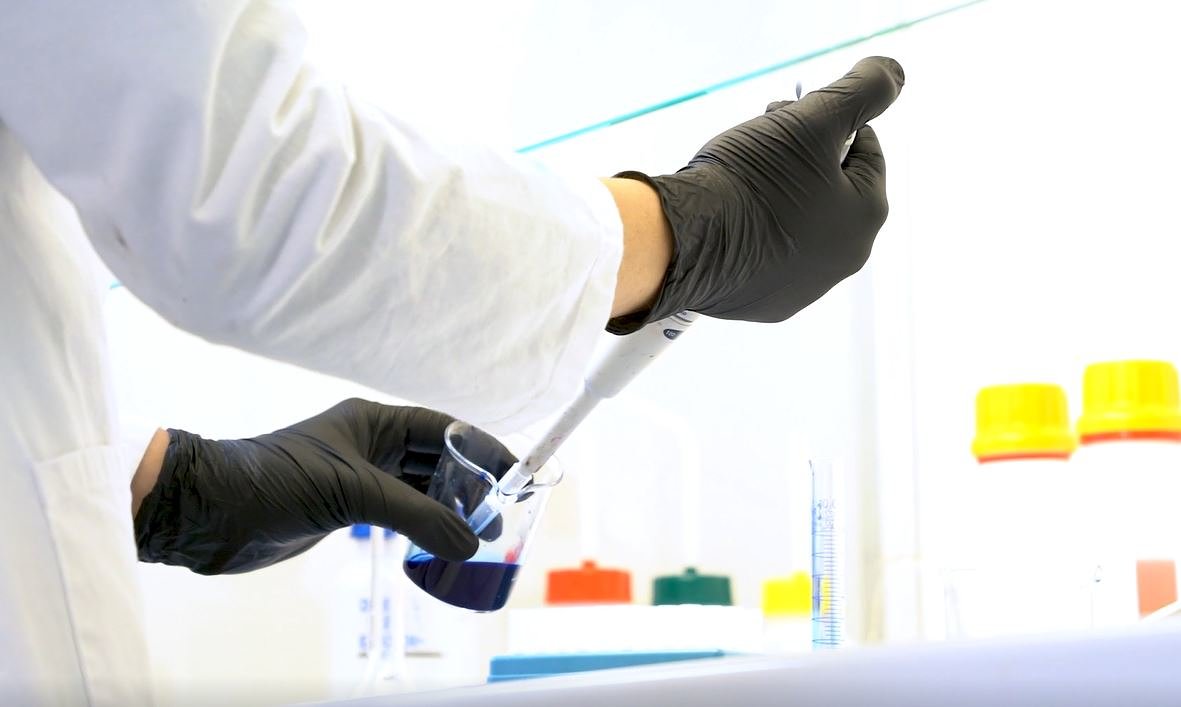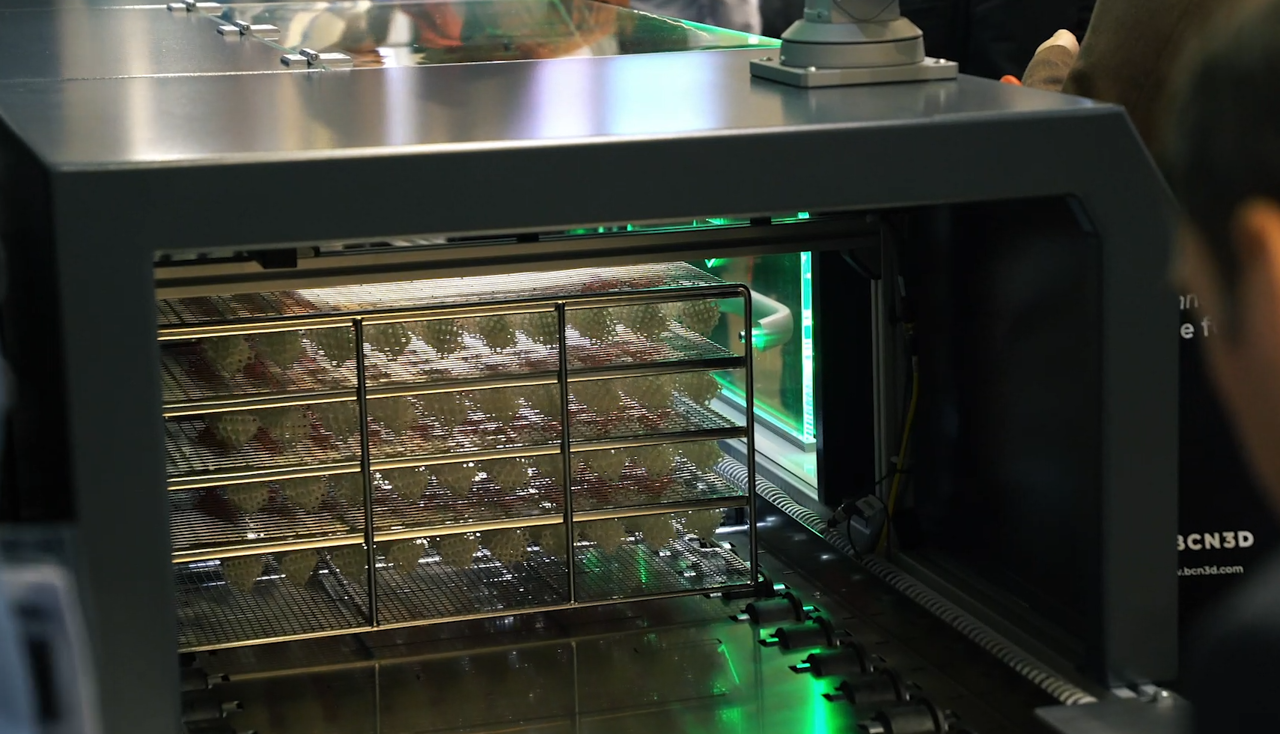Germany-HQ’d automated post-processing provider DyeMansion has raised $14 million in a Series B funding round.
The investment was led by new partner Nordic Alpha Partners (NAP), a Danish growth fund, and takes the total cash raised by the company to $24 million. Nordic joins existing investors UVC Partners, btov Partners, KGAL, and AM Ventures, who led the initial round of funding in 2018. According to DyeMansion, the fresh investment will be used to drive its transition into fully-digital manufacturing via increased automation and integration across its business.
“We are super happy to have Nordic Alpha Partners on board for our growth journey. They are a perfect fit for the current phase we are in with DyeMansion,” said Felix Ewald, CEO & Co-founder of DyeMansion. “Their unique approach and expertise will help us to further strengthen our position as a global industrial leader. It makes us proud that all our existing investors are continuing with their support as well.”
“This will help us and our customers worldwide to drive the transformation of manufacturing to digital production and the factory of the future.”

Investing in the future of post-processing
DyeMansion will utilize the additional $14 million worth of investment to accelerate its “shift towards digital manufacturing.” On the product side of its business, the company will integrate fully-automated, digital processes into its process chain, with the aim of driving greater efficiency.
The funding will also be used to strengthen the firm’s global presence and fulfillment capabilities. DyeMansion aims to make it as easy as possible for global accounts and local partners to either get started in 3D printing or to develop their operations into serial manufacturing. In order to achieve this expansion, the company is investing in new demo facilities and commercial business infrastructures, in addition to hiring regional application consultants.
For DyeMansion, the COVID-19 pandemic has not just exposed the weaknesses of the world’s supply chains, but it also “put the spotlight” on additive manufacturing. 3D printing has risen to the challenges of the ongoing crisis by supporting the production of face shields and nasal swabs, and resolving disruption within distribution networks. DyeMansion now believes that the growing interest in 3D printing generated by the pandemic has played a part in their recent investment.
“Great companies can always get funding and furthermore we believe that COVID-19 will be an accelerator of the 3D print adoption,” said Rasmus Lund, Investment Partner at NAP. “We are thrilled that the management team and the other investors both embraced NAP’s value creation model and allowed us to join DyeMansion’s mission.”
AM Ventures has funded DyeMansion since it was founded, and its involvement in the funding round is significant, as the company is a serial investor in 3D printing technologies. Additive manufacturing software company 3YOURMIND, materials business Elementum 3D, and start-up Conflux Technology, have all received investment from AM Ventures over the last five years.
“We at AM Ventures are very proud to have been part of the DyeMansion success story from the very beginning. 6 years ago, we jointly realized the great potential of post-processing 3D printed parts,” said Arno Held, Chief Venture Officer of AM Ventures. “Since then, this unique team has not only created its own segment within the AM industry, but DyeMansion has unlocked the gate to colorful and aesthetic 3D printed applications in numerous verticals.”

DyeMansion in the 3D printing industry
Founded in 2015, DyeMansion specializes in post-processing technology for Selective Laser Sintering (SLS) and Multi Jet Fusion (MJF) 3D printed products. Using a three-step ‘Print-to-Product’ method, the company’s systems clean, finish, and color 3D printed parts using a shot-peening technique.
The company’s offering covers the whole post-processing process, with its Powershot C machine delivering cleaning, its Powershot S offering surfacing, and the DM60 used for coloring. DyeMansion’s Powershot S machine also features its PolyShot Surfacing (PSS) technology. PSS applies a matte finish and enables the addition of a range of vibrant colors.
At Formnext 2019, the firm added another type of finish for its portfolio, with the launch of its VaporFuse Surfacing (VFS) technology. VFS is a closed, automated process, which acts as an alternative to PSS. The post-processing technique is capable of making 3D printed parts water-repellent and easy to clean, which are common properties in injection molded components. Following the release of VFS, DyeMansion announced the launch of its newest post-processing system, the Powerfuse S.
The machine features an “Eco Fluid” solvent that conforms to EU regulation 10/2011, meaning that it can be used for the processing of plastics that make contact with food. Using a closed-loop circulatory system, the solvent is constantly recycled, meaning that it never leaves the machine. As a result, the corrosive chemicals don’t have the chance to damage either the environment or the user.
Most recently, the company released 17 new colors specifically for post-processing 3D printed grey HP MJF parts made using Polyamide 12 (PA12). DyeMansion already offered the largest color database in 3D printing, and its new palette brought a splash of color to the gray parts created by HP Jet Fusion 4200 and 5200 systems.

Advances in post-processing technology
Post-processing is often as important as the 3D printers themselves when it comes to creating parts with a high-quality finish. A number of post-processing companies have developed their own proprietary technologies in recent years, with the aim of optimizing the features of end-use components.
Post-processing specialist Additive Manufacturing Technologies (AMT) has partnered with the Danish Technological Institute (DTI) to develop new food-contact applications for its PostPro3D automated systems. Using AMT’s patented Chemical Vapor Finishing Technology, DTI created polymer parts with a sealed surface finish that passed the EU’s food and skin contact related tests.
New York-based automated post-printing developer PostProcess Technologies has also been heavily backed recently, receiving $20 million in Series B funding last year. The company’s BASE system enables automated support removal when 3D printing parts and its RADOR hardware unit is capable of achieving various types of finishes.
Elsewhere, Quintus Technologies uses its High-Pressure Heat Treatment Technology to undertake another type of post-processing. Utilizing it’s Uniform Rapid Cooling System (URC), the hot gasses generated during post-processing are pushed away from the printed part. Completely finishing the component in one machine improves microstructure with enhanced strength and fatigue resistance characteristics.
You can now nominate for the 2020 3D Printing Industry Awards. Cast your vote to help decide this year’s winners.
To stay up to date with the latest 3D printing news, don’t forget to subscribe to the 3D Printing Industry newsletter or follow us on Twitter or liking our page on Facebook.
Looking for a job in the additive manufacturing industry? Visit 3D Printing Jobs for a selection of roles in the industry.
Featured image shows DyeMansion founders Philipp Kramer and Felix Ewald. Photo via DyeMansion.


